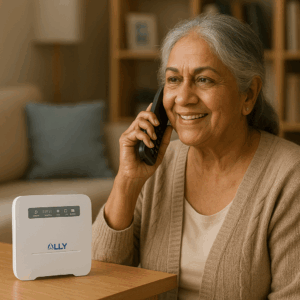In today’s world, streaming has become the go-to way to enjoy movies, TV shows, and live events. Traditional cable services are fading into the background as more people turn to streaming platforms like Netflix, Hulu, Disney+, and Amazon Prime Video. However, your streaming experience depends heavily on having the right internet for tv.
Choosing the right internet for tv can feel overwhelming, especially if you’re on a budget. Fortunately, finding an affordable option doesn’t mean sacrificing quality. With the right information, you can enjoy seamless streaming without breaking the bank. In this guide, we’ll explore how to choose the best internet for tv, why it matters, and how to optimize your setup for a smooth and enjoyable streaming experience.
Why Internet for TV Matters
The quality of your streaming depends on the speed, reliability, and efficiency of your internet for tv. Streaming platforms require a certain amount of bandwidth to deliver content without buffering or interruptions. Without adequate internet for tv, you may face frustrating lags, pixelated images, or even frequent disconnections.
Streaming services recommend different speeds depending on the quality of the content. For example:
- 3 Mbps is sufficient for standard definition (SD) streaming
- 5 Mbps is recommended for high definition (HD) streaming
- 15 Mbps or more is necessary for 4K Ultra HD streaming
Keep in mind that these recommendations are per device. If multiple devices in your home are streaming simultaneously, your internet for tv must provide enough bandwidth to support them all.
What to Look for in Internet for TV
When selecting internet for tv, there are several factors to consider to ensure the best performance for your needs. Speed, reliability, data limits, and cost are the most important aspects to evaluate.
Speed is crucial for uninterrupted streaming. While 5 Mbps may work for HD streaming on one device, households with multiple users may require speeds of 25 Mbps or higher to accommodate everyone. If you plan to stream in 4K, aim for even faster speeds.
Reliability is just as important as speed. No one wants their streaming experience interrupted by frequent outages or fluctuating performance. Look for internet providers with a reputation for consistent service.
Data limits can also impact your streaming. Many providers impose caps on how much data you can use each month. Streaming in HD or 4K consumes a significant amount of data, so an unlimited data plan is ideal for internet for tv.
Cost is a key consideration for budget-conscious streamers. The best internet for tv should strike a balance between affordability and performance. It’s important to compare plans and providers to find the most cost-effective option for your needs.
Types of Internet for TV
There are several types of internet connections to choose from, each with its own strengths and weaknesses. Understanding these options will help you make an informed decision about the best internet for tv.
- Fiber-optic internet is often considered the best choice for streaming. It offers ultra-fast speeds, low latency, and reliable performance, making it ideal for HD and 4K content. However, fiber-optic internet for tv may not be available in all areas and is often more expensive than other options.
- Cable internet is another popular choice for tv streaming. Widely available and capable of delivering high speeds, cable internet for tv can handle multiple users and devices with ease. Speeds can sometimes vary during peak hours, but it remains a reliable option for most households.
- DSL internet is a good option for homes in rural areas where fiber-optic or cable services aren’t available. While DSL internet for tv is slower than other options, it can still support HD streaming on one or two devices.
- Satellite internet is a viable choice for remote locations. While it provides coverage where other options may not, satellite internet for tv often comes with higher latency and data caps, making it less ideal for heavy streaming.
- 5G wireless internet is an emerging option for streaming. Offering speeds comparable to fiber-optic and cable, 5G internet for tv is a flexible solution for homes within areas with strong 5G coverage.
How to Choose the Best Internet for TV Without Overspending
Finding the best internet for tv on a budget requires careful consideration of your needs and available options. Here are some tips to help you make the right choice:
- Assess your streaming habits. Consider the number of devices in your home, the quality of content you stream, and the frequency of streaming. This will help you determine the speed and data requirements for your internet for tv.
- Compare providers in your area. Different providers offer varying plans and pricing, so it’s important to shop around. Look for promotional offers, bundle deals, or discounts for new customers.
- Opt for an unlimited data plan if possible. Data caps can quickly become an issue for avid streamers, leading to additional charges or reduced speeds. Unlimited plans ensure you can stream without worrying about overages.
- Don’t overpay for speeds you don’t need. If your household primarily streams in HD, there’s no need to invest in a plan designed for 4K streaming unless you’re planning to upgrade your devices soon.
- Consider alternative options like wireless internet providers or mobile hotspots. These can provide affordable internet for tv, especially for those in areas with limited traditional internet services.
Optimizing Your Internet for TV
Once you’ve chosen the best internet for tv, optimizing your setup can further enhance your streaming experience. Here are some tips to get the most out of your connection:
- Position your router in a central location. Walls, furniture, and electronic devices can interfere with your Wi-Fi signal, so place your router in an open area for maximum coverage.
- Use a wired connection for your streaming device. While Wi-Fi is convenient, a direct Ethernet connection can provide a more stable and faster internet for tv.
- Update your router’s firmware regularly. Manufacturers release updates to improve performance and security, so keeping your router up-to-date ensures optimal connectivity.
- Limit bandwidth usage by other devices. If someone in your household is downloading large files or gaming online, it may affect your internet for tv. Pause non-essential activities during peak streaming times to prioritize bandwidth.
- Conduct regular speed tests. Testing your connection can help you identify any issues and ensure you’re getting the speeds promised by your provider.
Why RingPlanet Stands Out for Internet for TV
RingPlanet offers affordable and reliable solutions for internet for tv, making it a great choice for budget-conscious streamers. Their high-speed wireless internet service provides a seamless streaming experience without the need for traditional installation.
With speeds starting at 25 Mbps, RingPlanet’s plans are perfect for HD and 4K streaming, as well as households with multiple devices. Their plug-and-play setup makes it easy to get started, eliminating the hassle of waiting for a technician or dealing with complicated wiring.
RingPlanet also stands out for its transparent pricing and lack of hidden fees. With budget-friendly options and a commitment to customer satisfaction, they deliver excellent value for anyone seeking affordable internet for tv.
Choosing the best internet for tv doesn’t have to be expensive or complicated. By understanding your needs, comparing providers, and optimizing your setup, you can enjoy seamless streaming without overspending.
Whether you opt for fiber-optic, cable, DSL, satellite, or wireless internet, the key is finding a solution that fits your budget and lifestyle. Providers like RingPlanet make it easy to access affordable and reliable internet for tv, ensuring you can stream your favorite content without interruption.
Don’t let a poor connection ruin your streaming experience. Invest in the right internet for tv today and enjoy endless entertainment at a price you can afford.






